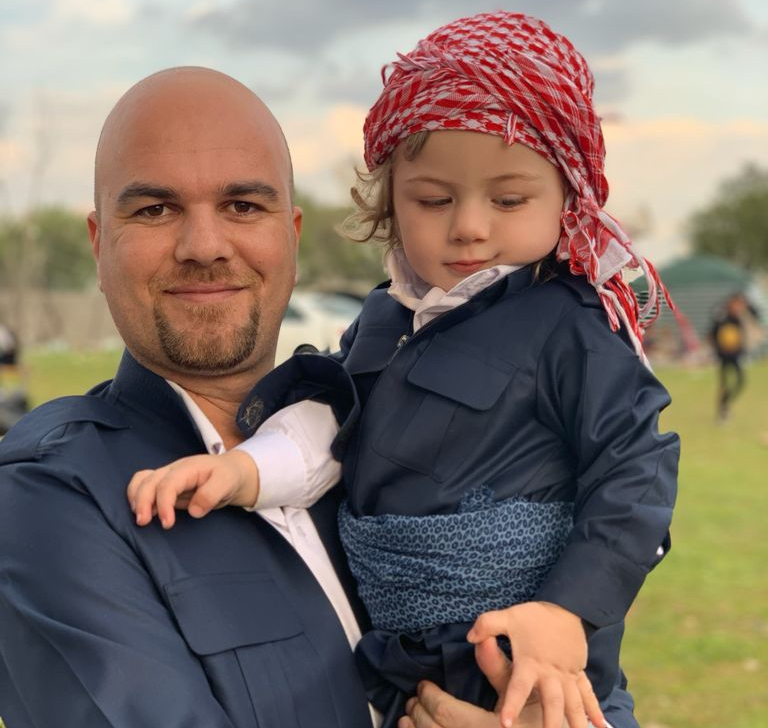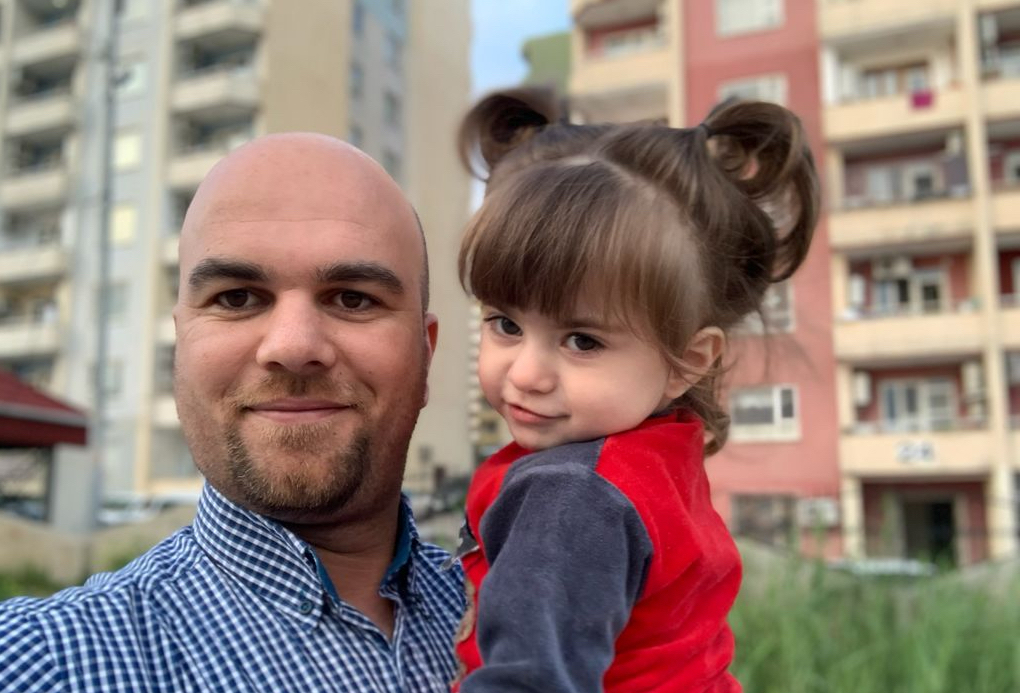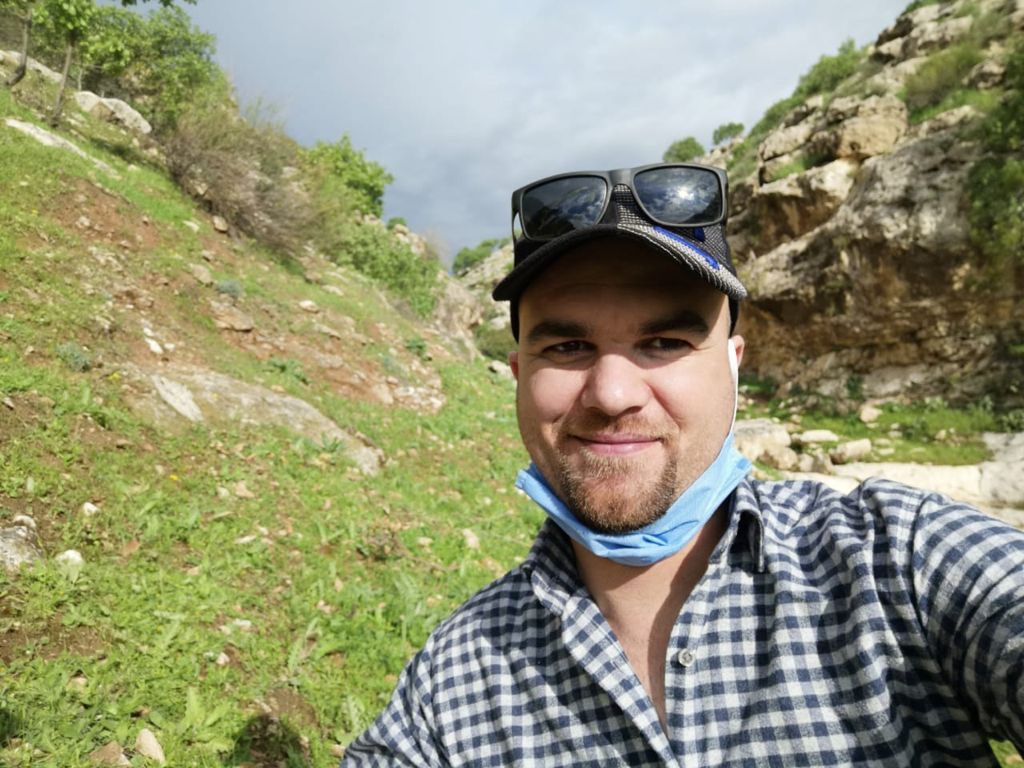Scottish politicians and academics at Glasgow University have called on authorities to release a former Glasgow University student arrested in Kurdish Iraq and charged with high treason. His arrest is part of what Amnesty International UK has called a “chilling crackdown” on activists and journalists in Kurdish Iraq.
Glasgow University adult education masters graduate, Sherwan Ameen, returned to Kurdish Iraq in 2015 with his wife – who had also graduated from the university in forensic toxicology – after their courses were complete. He hoped to play a part in rebuilding his country while bringing up his young children, now aged three and four.
However Ameen – an English language lecturer at Nawroz University in Duhok – was arrested in September 2020 and initially held without charge. For four months his family did not even know of his whereabouts, or if he was alive or dead.
He has had little access to a lawyer and was last month charged with high treason, which carries a potential death penalty. His trial, which has so far been delayed twice, is now due on 6 October.
His arrest was part of a widespread crackdown by the Kurdish Regional Government (KRG) against those involved in a campaign demanding better public services, payment of overdue salaries for government employees and an end to corruption.
Now SNP MP for Stirling Alyn Smith has written to Foreign Secretary Liz Truss asking her not only to join calls for the release of Ameen and others facing charges, but to intervene in helping to secure the volatile political situation in Iraqi Kurdistan.
He and his friends are just asking for fair trial as they know they have done nothing wrong and there is no proof for the charges
Jwan Hussein
It follows an early day motion put down by fellow SNP MP for Glasgow North, Patrick Grady, on the issue, which has cross party support. The Glasgow North MP has tabelled a written question for the Foreign Secretary asking for her response to it, due today.
Amnesty International UK said the “arbitrary” arrests had been used to “silence critics” and raised concerns about “unfair trials and “unsafe convictions” in the region.
Speaking to The Ferret, Ameen’s wife, Jwan Hussein – who is still in Iraqi Kurdistan with their two children Shad, 4 and Zari, 3 – said she felt both “hopeless and desperate” over the situation. Her husband and fellow prisoners are now on hunger strike, and are in a “poor condition”, she claimed.

“He and his friends are just asking for fair trial as they know they have done nothing wrong and there is no proof for the charges,” she said.
She welcomed a petition, set-up by Ameen’s former lecturers, calling for “justice” to be applied to his case, and said she was “grateful for having some wonderful people in Sherwan life like lecturers, friends and classmates in Glasgow”.
“At Glasgow University my husband and I lived the best days in our life. After living in the UK, we returned with Sherwan hoping one day his hometown could be so wonderful and safe for his children,” she added.

“But I am pessimistic about his trial – like lots of families here. The prisoners are in very bad condition but they refused to break the strike.”
Hussein is only able to speak to her husband on the phone for two minutes every fortnight and has seen him just once since his arrest. His mother died earlier this month, but she has not felt able to pass on the news.
Professor Michael Osborne, chair of adult and lifelong education at Glasgow University, said he was shocked to learn of Ameen’s arrest. He had continued to work with his former student on UNESCO global “learning cities” network programme, the subject of Ameen’s masters’ thesis.
We had seen some encouraging changes in Iraq. But it’s certainly not clear that these arrests are in the spirit of democracy. We know that some people have been arrested and detained for a long time.
Professor Michael Osborne
“The work that I am doing with him is apolitical – we’re just encouraging cities across the world to build-up their connections to learning so this was a complete shock,” he said. “I never imagined anyone like him to face these charges.
“Academics at the university have been trying to raise awareness of the situation and to use politicians here to help us to get the message across to authorities in Kurdistan.
“We had seen some encouraging changes in Iraq. But it’s certainly not clear that these arrests are in the spirit of democracy. We know that some people have been arrested and detained for a long time.”
Amnesty International UK Scotland programme director Naomi McAuliffe, said the human rights organisation was not directly involved in the case. But she claimed concerns raised fitted with a worrying pattern in Iraqi Kurdistan.
“The authorities in the Kurdistan Region of Iraq have launched a chilling crackdown on journalists and activists in the past year amid a growing atmosphere of fear in the region,” she added.
“In June Amnesty published evidence of the widespread use of arbitrary arrest, enforced disappearances and torture of activists and journalists in an effort to silence critics. We also know that many have been subject to trumped up charges and unfair trials and that many convictions are unsafe.
“In 2019 the UK Foreign Office published clear guidelines around what support it can provide to human rights defenders, including attending trials and visiting detained. We would expect UK authorities to be monitoring the situation and considering what diplomatic action can be taken.”
The Kurdish Regional Government embassy in London has been contacted for a comment.














